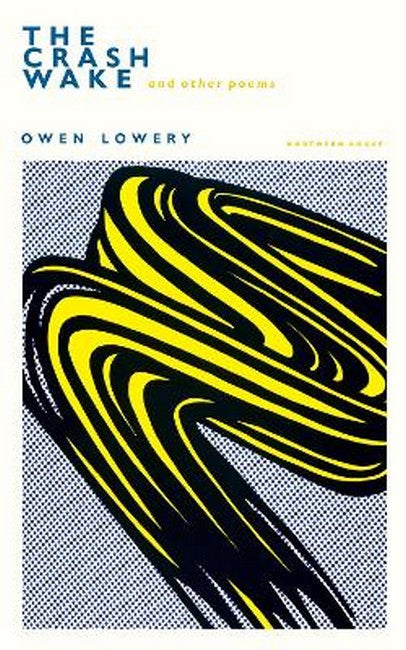In February 2020, ventilated tetraplegic poet Owen Lowery and his wife, Jayne, were travelling to Scotland when their vehicle aquaplaned, spun round on the motorway, hit a barrier, flipped over the barrier and rolled over several times, before coming to rest on its side in a field. Having barely survived, Lowery emerged into a world transformed by the coronavirus, one in which life and death had moved closer. During his months of recovery from three brain bleeds, a shattered right arm, multiple seizures and pulmonary bleeding, Lowery returned to writing poems, many of which address the strangeness, the disorientation, of his situation and that of the world in general. Lowery writes amidst reports of Government and health initiatives that suggested potential utilitarian sacrifices of 'the vulnerable'. The fear and loss of the vulnerable and the voiceless haunt many of the poems. In the Crash Wake sequence, Lowery adopts a twelve-line form. Twelve lines was as long as he could manage to sustain a poem at the time, due to repercussions from his head injury. The form also allows him to take what Keith Douglas called 'extrospective' snapshots of the new environment in which he found himself: streets empty of people, an Italian village cut off by the army, a train in India killing migrant workers in their sleep. Recovery, nature and love fill the gaps in this changed world. Lowery's new book appreciates afresh landscape and wildlife, family and marriage, the importance and fragility of life.

